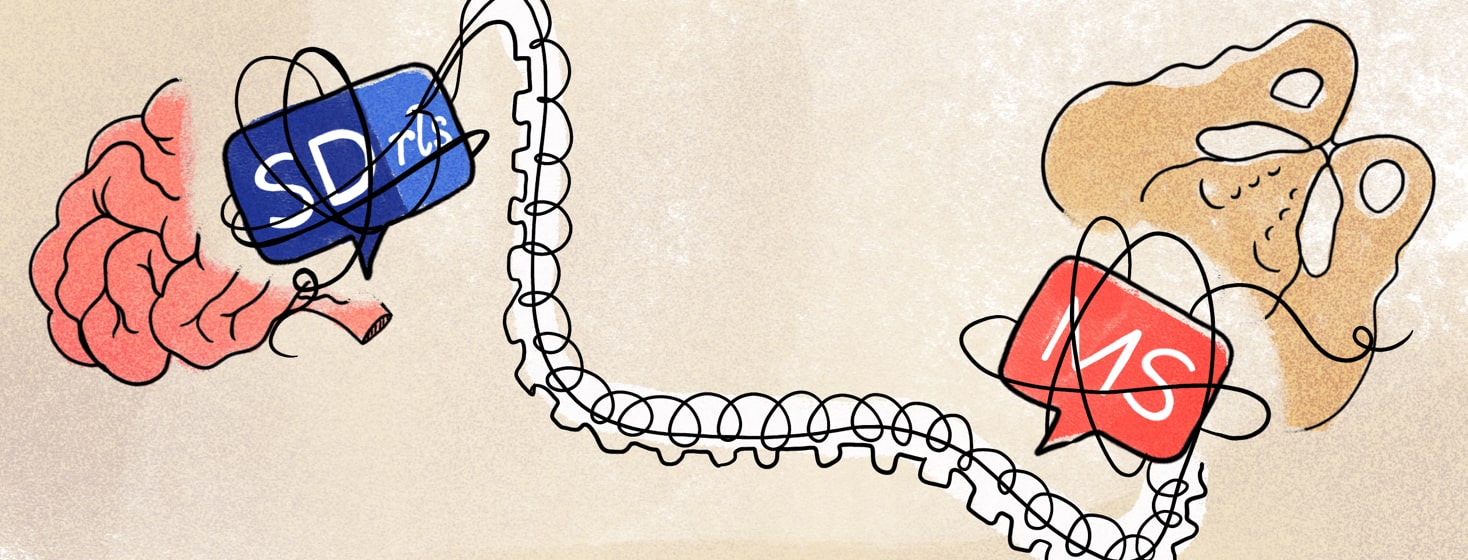What Is the Connection Between MS and RLS?
Restless legs syndrome, or RLS, is a sleep disorder. It affects around 7 percent to 10 percent of the American population. It causes an uncontrolled urge to move your legs. It also causes other unpleasant sensations that happen when you are at rest.1,2
Doctors and scientists are still figuring out what causes RLS in most people. For some, the condition may be passed through their genes. Low iron levels in the brain could also cause it. Or a problem related to the chemical dopamine in a part of the brain that controls movement.1
What is multiple sclerosis (MS)?
Sometimes, RLS impacts people living with multiple sclerosis (MS). Multiple sclerosis is an illness of the brain and spinal cord (central nervous system). MS often causes changes to movement, vision, and other functions. Around 1 million people in the United States have MS.3,4
MS happens when your immune system attacks the protective covering of your nerve fibers, called myelin. This interrupts communication between your brain and other parts of your body, causing lasting nerve damage.3
What is the link between MS and RLS?
When you have a disease of the central nervous system like MS, you are more likely to have RLS. Research shows around 25 percent of people with MS also have RLS. That is compared to less than 4 percent of people without the illness.5
It is unclear why people with MS are more likely to have RLS. But research suggests a link between spinal cord lesions (damage) and RLS. These lesions, which can happen during an active MS phase, may disrupt signals to the spinal cord.2,3
How RLS affects sleep and impacts health
RLS symptoms can affect your sleep quality – you may have trouble falling and staying asleep. And the more severe your symptoms, the worse your rest will likely get. Research also links RLS to higher chances of:2,5
- Disability
- Feeling sleepy during the day
- Spinal disease that shows up on MRI (magnetic resonance imaging) scans
This is on top of sleep problems that people with MS already face. Around half of adults with the illness say they have trouble sleeping. Many have sleep issues like insomnia and obstructive sleep apnea. A lack of quality sleep may also worsen other MS-related health issues, like cognition (thinking).2,5
Managing RLS and MS
When you have MS, the symptoms of RLS can look and feel like other conditions, such as neuropathic pain or spasms. That is why it is critical to be evaluated by an experienced neurologist. You may even need to see a sleep specialist for severe symptoms. These professionals can help pinpoint what is causing your symptoms and suggest treatment.6
Here are some lifestyle changes you can make to ease RLS symptoms:7
Get regular exercise
One small study of 39 adults with MS found that light physical activity in the evening may help manage RLS symptoms without making sleep quality worse.8
Cut back on caffeine
Foods and drinks that contain caffeine include coffee, tea, soda, and chocolate.7
Practice good sleep hygiene
When you are tired, RLS symptoms can grow worse. Be sure to keep your bedroom cool and quiet, and go to sleep and wake up at the same time every day. Also, try to get at least 7 hours of sleep each night.7
Talk to your doctor
Your doctor could also recommend medicine to treat moderate to severe RLS. Some drugs work by boosting dopamine in the brain. There are also muscle relaxants or sleep aids for better sleep. However, these drugs will not relieve RLS symptoms. Talk to your doctor about which drug – or combination of drugs – could be right for you.7

Join the conversation